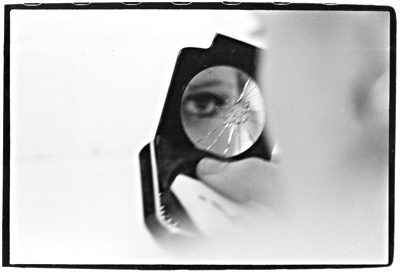All Nonfiction
- Bullying
- Books
- Academic
- Author Interviews
- Celebrity interviews
- College Articles
- College Essays
- Educator of the Year
- Heroes
- Interviews
- Memoir
- Personal Experience
- Sports
- Travel & Culture
All Opinions
- Bullying
- Current Events / Politics
- Discrimination
- Drugs / Alcohol / Smoking
- Entertainment / Celebrities
- Environment
- Love / Relationships
- Movies / Music / TV
- Pop Culture / Trends
- School / College
- Social Issues / Civics
- Spirituality / Religion
- Sports / Hobbies
All Hot Topics
- Bullying
- Community Service
- Environment
- Health
- Letters to the Editor
- Pride & Prejudice
- What Matters
- Back
Summer Guide
- Program Links
- Program Reviews
- Back
College Guide
- College Links
- College Reviews
- College Essays
- College Articles
- Back
Why “13 Reasons Why” Fails MAG
Everyone at my school is discussing “13 Reasons Why,” Netflix’s new series based on the book. It seems like all I hear is how much people love it, how romantic it is, how beautiful. But no one mentions how it does a great disservice to those suffering with mental illness and suicidal ideation.
When I found out Netflix was creating a series based on the popular book, I was excited. I wanted “13 Reasons Why” to be a poignant and accurate view of suicide. In today’s society, mental illness is surrounded by stigma and misconceptions, and is often depicted inaccurately. I wanted and hoped for Netflix to take this opportunity to spread awareness, to give people greater understanding of those who live with mental illness. What this show did is exactly the opposite.
My main criticism with “13 Reasons Why” is that it romanticizes and dramatizes suicide to attract an audience. Mental illness isn’t pretty. Suicide isn’t pretty. It’s not trivial teenager drama. The Netflix series presents suicide as a beautiful act of revenge. As though leaving cassette tapes describing what led you to take your life could be artistic, gain you the appreciation of peers, or is the only way to communicate your pain to others. This portrayal of suicide is extremely harmful. It glorifies and encourages the act. It belittles it as mere “teenage drama.”
In addition, this show that’s meant for a pre-teen and teenage audience contains scenes depicting sexual assault, suicide, and self-harm. Showing these acts goes against the advice of many mental health organizations, as well as the guidelines set by the American Foundation of Suicide Prevention for how to safely portray suicide. According to these organizations, such graphic depictions can lead to copycat behavior in young viewers.
Another criticism of the show is that Hannah, the main character who commits suicide, is never portrayed as anything more than dramatic, attention-seeking, and self-centered. Her character isn’t developed or explored beyond the fact that she’s the girl who dies. This representation, or lack thereof, does nothing to lessen the stigmatization of people who are suicidal or have attempted suicide.
Hannah’s mental health isn’t mentioned once. Mental health plays a major role in an individual’s risk for suicide. I’m not saying that what the main character experienced – bullying and sexual assault – aren’t contributors to a person’s decision and resulting action to end his or her life. They certainly could be. But suicide is complex. The show also simplifies self-harm by depicting it as an alternative to suicide, which is a glorification that could lead young people to try it.
Lastly, “13 Reasons Why” depicts all the other characters, including the school counselor, as unsupportive and uncaring. Sadly, many people find themselves in situations where it seems no one cares about or notices them. But there is always someone to talk to, even if it’s just a stranger on a suicide hotline. The show’s lack of supportive peers and adults could deter young people from seeking help for mental health issues and cement the idea that asking for help is pointless.
Speaking of which, the show provides no resources to viewers who may relate to Hannah and need support. Watching “13 Reasons Why” could easily aggravate a viewer’s suicidal ideation. The American Foundation of Suicide Prevention states that when discussing suicide, providing websites or hotlines can help prevent the spread of self-harm.
Despite all of its failures and insensitivity, people are still captivated by “13 Reasons Why.” Why? Because people only want to talk about suicide if it’s glamorized. If it’s coated in sugar, depicted by a beautiful actor, and handed to you via Netflix. No one wants to look at the darker side of the issue. This lack of attention should be shocking, but it’s the norm. Accurate, safe, stigma-free portrayals of mental illness and suicide are badly needed. Sadly, “13 Reasons Why” doesn’t supply this. When will we finally have a show that’s brave enough to forget ratings and promote a productive discussion of mental illness?
If you are depressed or
thinking about hurting yourself, you can find help!
National Suicide Prevention
Lifeline: 1-800-273-8255

Similar Articles
JOIN THE DISCUSSION
This article has 2 comments.

3 articles 0 photos 2 comments
Favorite Quote:
"The world keeps spinning. Time goes on."<br /> -My cousin Alicia.